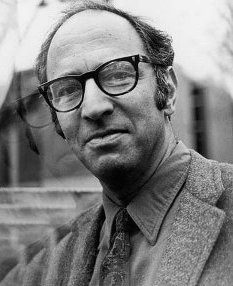In this unit of the Objectivity course we feature Kuhn’s The Structure of Scientific Revolutions, in which he questions whether science is or can be an objective process based upon observational facts that makes progress toward truth.
Thomas Kuhn was a professor at Massachusetts Institute of Technology and author of The Structure of Scientific Revolutions, a classic in the history and philosophy of science.
The full course on Objectivity: https://www.atlassociety.org/course/objectivity.

Related:
I remember when I read the Kuhn, and then I stumble on chapter 13. It is now in my list of misleading books.
The structure of scientific revolutions by Thomas S. Kuhn
This is a post-modernist book. He hides his intentions, changes the definition of concepts to put forward his story as the only viable one. His true motives appear in chapter XIII starting with “These last paragraphs point the directions in which I believe a more refined solution of the problem of progress in the science must be thought…” The main thesis of the book is that there is no such thing as progress when it comes to science. The author does not recognize truth as an end-goal of the science project, rather science follows an evolution pattern similar to the one described by the theory of evolution and therefore without an end-goal (life has no end-goal, it just exists and evolves). We find the same necessity to find purpose in inanimate things or systems based on process (society and science for example) in the animist thinking, which predate religions.
Since the notion of progress is related to an end goal, the author tries also to convince us that the quest for truth is not legitimate, for without an end goal there is not ‘A Truth’ to get. The reality is that because the author rejects the idea that there is such a thing as truth, then progress doesn’t make much sense. He begs the question. We find again the concept of changes, which oppose the concept of the constant evolution of things, and those changes happen during a power conflict that will generate new paradigms, like a revolution will do (a collectivist one, of course). Kuhn cannot see that science progress is done by the accumulation of knowledge and/or to reduce the margin of error of the truths we already have gleaned (reread the chapter on essentialism), which are processes in constant evolution with a final goal, just having a point of reference to know if they are doing the right job.
Letter2Tep
“The author does not recognize truth as an end-goal of the science project, rather science follows an evolution pattern similar to the one described by the theory of evolution and therefore without an end-goal (life has no end-goal, it just exists and evolves).”
Interesting! It’s 35 years since I read this book. It made a different impression on me. What I took out of it was that “in theory”, Science claims to advance purely by the scientific method. In practice there are other factors which can impede or accelerate progress. Plate tectonics, and the big bang theory are two examples where it took a generation to die out before the new ideas supplanted the old, even though the new ideas had been mooted a generation earlier. To me that’s adding a dose of realism but it doesn’t deny that we can advance towards truth.
On your specific point, I don’t recall that specific section and I may be wrong about Kuhn’s idea. However, it’s vital we do view science as a continuous never ending process. Once we say “that’s it – we got to truth” we are not longer doing science, we have just reinvented received wisdom. To take an example – let’s talk about evolution. The theory of evolution is right, not because we can prove it, but because we don’t have a better explanation. Sure, there are creationists out there but parsimony tells us that claiming that god did all, it is not a good explanation. I can’t imagine someone coming up with a better explanation, but we must always remain open to the possibility that one might come along. If we don’t we are no different to the creationists – we ‘ve just raise Darwin to the status of saint, and that’s not science.
On a slight tangent, when some politician says that we must “follow the science” or “the scientific consensus says”… that’s scientism, not science.